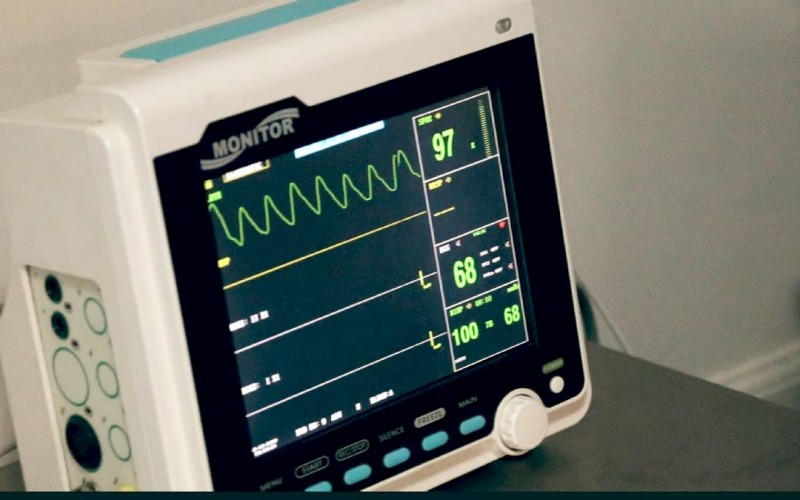Mitral Valve Prolapse can lead to blood leakage. Scientifically known as Mitral Valve Regurgitation, this condition can range from trivial, mild, moderate to severe depending on to which extent it affects the ability of the heart to pump blood.
Individuals with mild Mitral Valve Regurgitation commonly live long and do not require treatment because a small amount of blood leakage does not significantly affect heart health. But in some cases, it may lead to serious complications such as stroke, heart failure, and death.
Does mitral valve regurgitation shorten your life? The answer may vary depending on your severity level and the kinds of treatments you have done.
Here, you are about to learn more about mitral valve regurgitation and its life expectancy.
What Is Mitral Valve Regurgitation?
MVP is a condition when your valve flaps do not close evenly. The prolapsed leaflets allow blood to leak backward through the valve, leading to a condition called mitral valve regurgitation. It becomes one of the most common types of valvular heart disease.
If the leakage is mild, this condition barely impacts heart health. On the other hand, severe leakage causes not enough blood to move through the heart or the whole body which eventually leads to tiredness and shortness of breath.
The treatment for Mitral Valve Regurgitation varies depending on the level of severity. While mild regurgitation does not require treatment, the severe condition requires heart surgery or even replacement of the mitral valve. If left untreated, it can cause arrhythmias or heart failure.
Life Expectancy of People with Mitral Valve Regurgitation

According to research, individuals with a mild blood leakage in their heart valve can live life to the fullest just like people with normal valves.
People with mild regurgitation can do almost any activities like other people, just remember not to push themselves too hard and try limiting themself from heavy exercise.
They remain alive more than 5 years after diagnosis and do not need treatment because the disease does not significantly affect heart health.
However, individuals with severe mitral valve regurgitation may have a lower life expectancy, especially if it goes untreated.
The survival rate drops to around 60 percent at 5 years. This is why your severity level does matter when it comes to life expectancy and risk of death in the first 5 years after diagnosis.
Since most cases of Mitral Valve Regurgitation barely show symptoms, many people are not aware of this condition. If you develop symptoms that suggest mitral regurgitation such as fatigue, shortness of breath, irregular heartbeat, or swollen ankles, you may want to visit your healthcare provider.
The earlier you get the diagnosis, the higher your survival rate. Your cardiologist will perform observations to ensure at which level your severity and determine whether or not you need specific treatment.
Severe mitral regurgitation may require immediate surgery. This procedure helps prevent serious complications such as stroke and heart failure. Surgical treatments can also prolong the life expectancy of people with blood leakage.
Mitral Valve Repair to Restore Life Expectancy
In many cases, blood leakage does not instantly affect the heart’s ability to pump blood. That means it can compensate for some time. This is why many people who demonstrate mitral regurgitation feel just fine.
However, if left untreated, the mortality rate goes higher. Patients with a mild condition who get medical treatment can have a long survival rate.
Meanwhile, 10 years after being diagnosed about 90 percent of people with severe blood leaks either have died or have undergone heart surgery to fix their hearts will not be able to survive for 10 years.
Surgery is the most common procedure to repair a floppy mitral valve that causes mitral regurgitation. The goal is to allow the valve to close evenly and tightly by cutting a segment of the valve.
There are a few ways to perform this surgery, including:
Sternotomy
This is a traditional type of operation in which the surgeons will see through the breastbone. They go down the midline, reach the valve, and cut the segment.
Mini-Mitral Access
This modern procedure also known as minimally invasive mitral valve surgery that involves an incision between ribs, on the side of the patient’s body. The specialists do not need to cut the bone to get to the valve.
Robotic-Assisted Repair
Using this procedure, you do not have to cut muscles or bones, promoting a faster recovery. The surgeons reach the valve from the right side of your chest.
Conclusion
The life expectancy of patients with Mitral Valve Regurgitation varies depending on the severity level. While individuals with mild conditions can live full lives, those with severe mitral regurgitation may require treatment to achieve a higher survival rate.




Leave a Reply